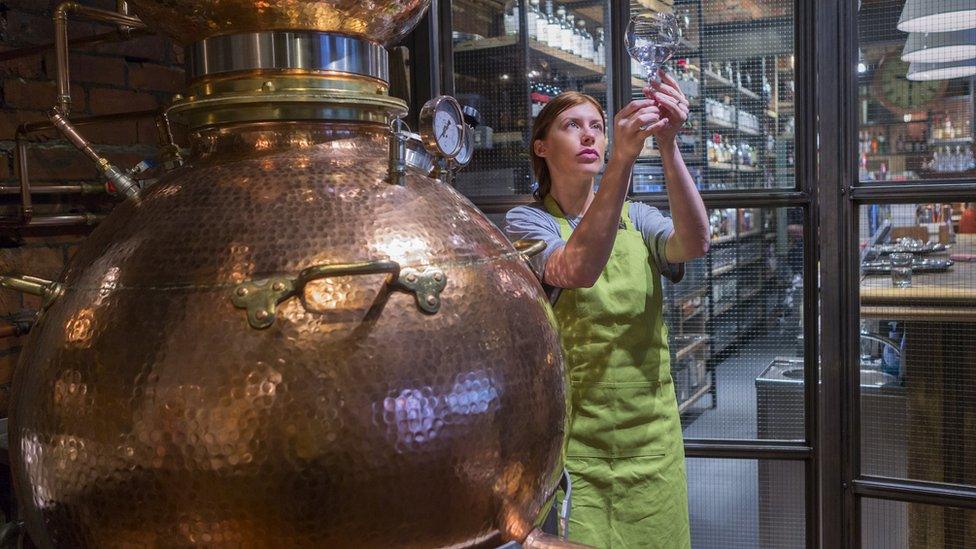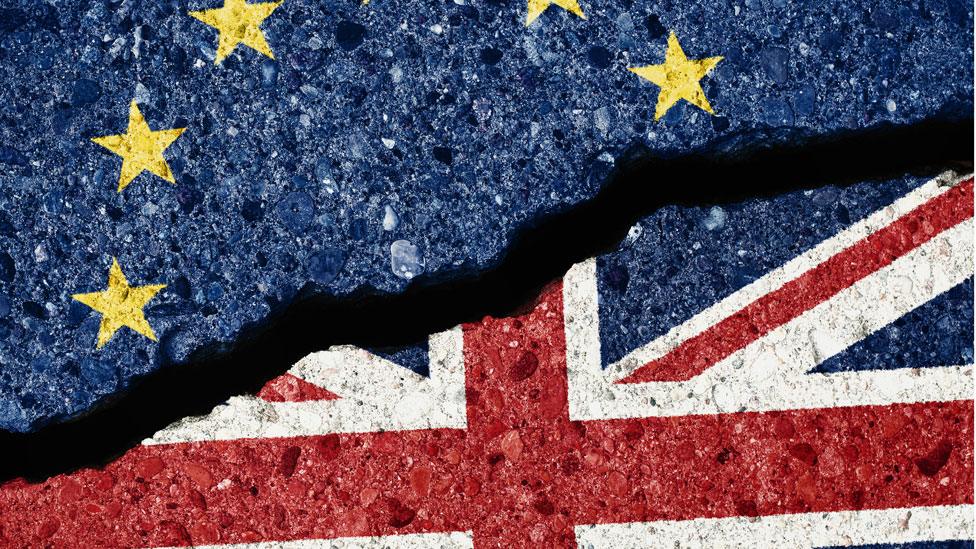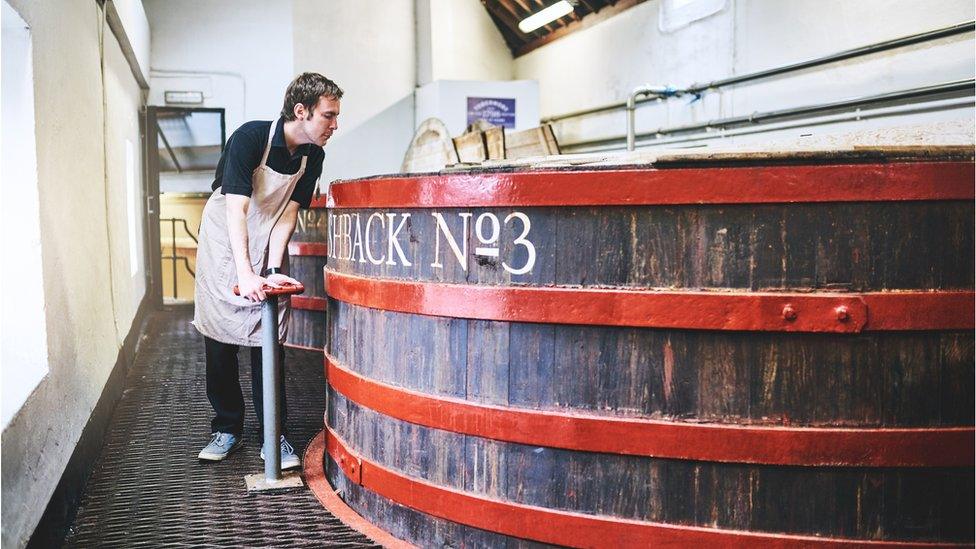Whisky and salmon exports 'surge'
- Published

Whisky and salmon from Scotland led the way to a surge in exports of food and drink from the UK during the first three months of this year.
Figures compiled by the Food and Drink Federation showed that total UK exports by firms in the sector were up more than 10% on the start of 2018.
The total value reached £5.8bn.
But the federation warned that foreign firms were pulling back on buying British produce "due to ongoing Brexit uncertainty".
It said this could have a "significant impact on food and drink export figures later in 2019".
Whisky sales, almost all from Scotland, rose by 19% at the start of this year, compared with January to March 2018.
That rise, by £183m, took the total value of Scotch exports for the quarter to £1.139bn.
The volume of exports was also up, by 16%, reflecting the continued shift among whisky drinkers to premium brands.

The Scotch Whisky Association put its own interpretation on the numbers, saying that more than 300 million standard-sized bottles of Scotch were exported between January and March.
"Growth has been particularly strong in the Asia-Pacific region, up 37% on 2018 to 75 million 70cl bottles, with India and China in double-digit growth," said a spokesman.
As most of Britain's gin is distilled in Scotland, that took the total first quarter boost to an additional quarter billion pounds of value. Total UK gin exports were up 30%, or by £35m.
Salmon exports were up by 41% - a rise of £60m. As prices rose, that represents an increase in the volume of farmed salmon being exported from Scotland of 20%.
The figures were compiled from data published by HM Revenue and Customs.
They may reflect stockpiling, at least of whisky, by importers wishing to avoid any disruption from Brexit, which was due to take place at the end of March.

Others in the top 10 food and drink exports from the UK all saw growth, including chocolate, cheese, wine, beef, beer, breakfast cereals and pork.
Wine is a relative newcomer as a major export from Britain, amounting to £173m of value in only three months, up by 20%. Beer was up 20% as well, to £130m.
Growth in exports to non-European Union destinations was up 12% to £2.1bn, while the growth in sales into the EU grew by less than 10%, at £3.7bn.
The faster growing trading partners included Japan, up by 52%. A further five of the top 20 export markets for food and drink registered growth of more than 20%.
A market with growing importance to British exporters is Saudi Arabia, with sales for January to February trebling in the past 10 years. Riyadh's top five imports of UK produce were oats, breakfast cereals, chocolate, sweet biscuits and eggs.
Ian Wright, chief executive of the Food and Drink Federation, commented: "The food and drink industry continues to outperform expectations, delivering another quarter of exceptional exports growth despite the damaging uncertainty with which businesses have to contend.
"With the right support in place, our industry could deliver so much more. We urge government to co-invest, and to help us to provide the support our industry urgently needs to further enhance this growth."
- Published30 April 2019

- Published1 May 2019